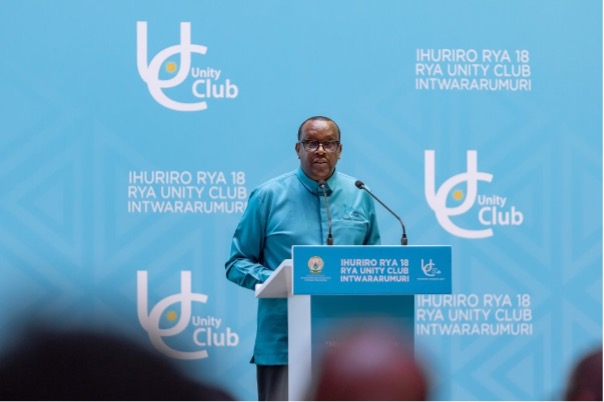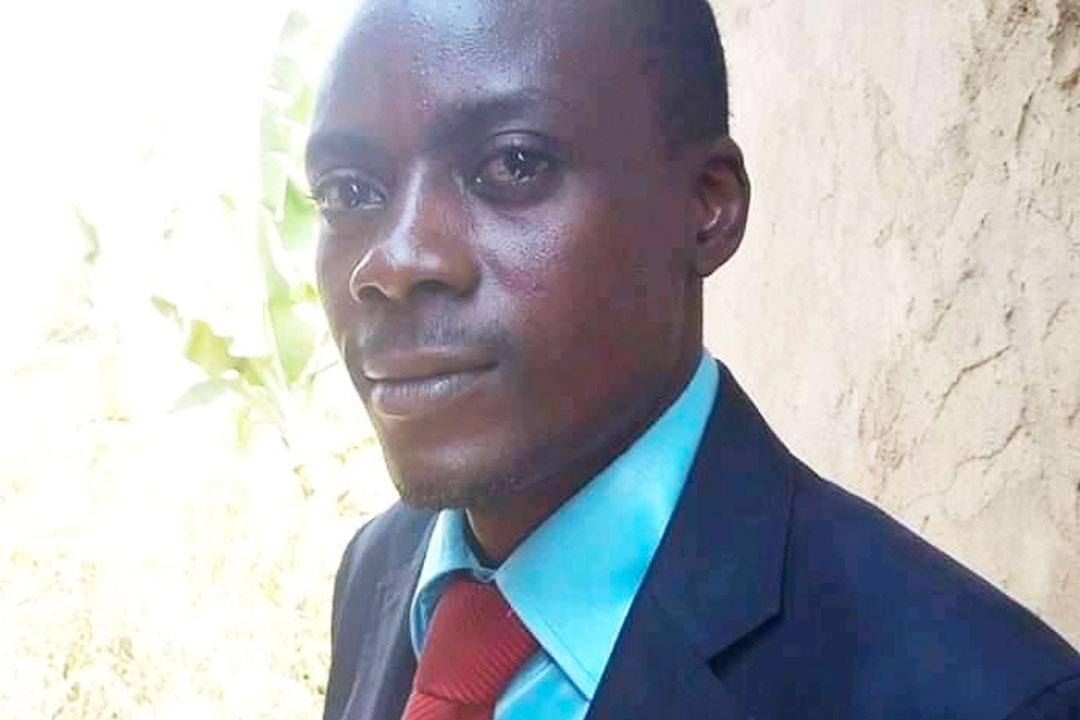“If I had to choose a name for myself, and that name should signify what I am, or what I would like to be from the bottom of my heart, my name would be “Rwanda reconciled by Christ” Kizito Mihigo, March 2015.
It is in 2011 that the man whom France24 calls “the apostle of Rwandan reconciliation” settled in Rwanda permanently, after completing his studies at the Paris Conservatory of Music, for which he had received a scholarship from the Rwandan government.
On his return to Rwanda, Kizito Mihigo, an orphan and survivor of the genocide against the Tutsis at the age of 13, was consecrated: stadiums, churches and concert halls filled up at the mere announcement of his presence. Apart from his songs that made hits, Rwandan crowds are attracted by his message of peace, that he advocates for through his “Kizito Mihigo for Peace” foundation. He becomes so popular that Rwandan television allows him to host a program called “Umusanzu w’umuhanzi”.
In schools, students jostle each other to listen to his teachings and songs. No layer of Rwandan society seems insensitive to the artist as even in prison, prisoners ask for him.
In just a few months, the man who was born in July 1981 in Kibeho became Rwanda’s superstar. He was even adored by the country’s highest authorities, who praised the man who, for a moment, had become, in his own words, “the official singer of the regime“. Kizito Mihigo would even reach the highest peaks of the state when he was awarded the CYRWA (Celebrating Young Rwandan Archivers) prize by the Imbuto foundation, chaired by Jeannette Kagame in person.
But far from the glitter, far from the applause, far from the praise, far from the crowds, far from this life that many would dream of, Kizito Mihigo felt a profound emptiness.
This emptiness was partly due to his love for solitude; because he was too sensitive to human suffering. He hates to be happy next to an unhappy person and, to use his own words, he “prefers to lead funeral masses rather than to sing at wedding masses“.
This void is also caused by an impression that the artist is missing out on a divine mission entrusted to him. Kizito Mihigo, a fervent Catholic, has long been firmly convinced that he was created by God to reconcile Rwandans, as summed up in this sentence that he would write to us in March 2015: “If I had to choose a name for myself, and that name should signify what I am or what I would like to be from the bottom of my heart, I would call myself ‘Rwanda reconciled by Christ’.
“I am the greatest enemy of superficiality and the greatest friend of spirituality.”
Although he officially advocates peace and reconciliation in his interventions, the artist is aware that his teachings are somewhat rendered superficial, following the guidelines imposed on him by the Rwandan dictatorship on how to address the issue, while he defines himself as “the greatest enemy of superficiality and the greatest friend of spirituality“.
Indeed, Kizito Mihigo, an orphan of the Tutsi genocide, is convinced that reconciliation is impossible as long as a taboo persists on the thorny issue of the Hutu and Tutsi victims of the RPF, who are deprived of memory, justice and even recognition.
It is in this quest for spirituality and in this desire to go to the depths of Rwandan evil in order to uproot it, that Kizito Mihigo approaches Gérard Nyamihirwa Niyomugabo, a young thirty-year-old university professor whose depth inspires all those who cross his path.
Kizito Mihigo takes advantage of the platform he has on Rwandan television to regularly invite Gerard Niyomugabo, author of several books, to come and talk about various social subjects such as history, spirituality and the reconstruction of Rwandan society after the various tragedies that have plagued it.
Alongside these public appearances, Kizito, Gerard and other young people, who then claimed to be part of the “Abatangana” movement, spent hours discussing the actions that need to be put in place in order to put a definitive end to the divisions that have gnawed away at Rwandan society in the past, and continue to gnaw away at it in the present.
It is in this context that Kizito released one of his most famous songs called “Igisobanuro cy’urupfu”, which the artist described as “the culmination of his message of reconciliation“. “The genocide made me an orphan. But that does not prevent me from having compassion for other people who were victims of violence that was not called “genocide” … These brothers are also human beings, I pray for them … they have all my compassion … I carry them in my thoughts … (…) there is no such thing as a good death, whether it is a death caused by genocide, war, or caused by those who commit crimes of vengeance,” he sings, freeing himself from a weight that had been on his heart ever since he had the impression that he was missing the divine mission that had been entrusted to him.
In Rwanda, the song resounds like a thunderbolt and many people question the process that led the country’s beloved child to break such a deep-rooted taboo in Rwandan society in such a shattering way, some even going so far as to see in it a willingness of the regime to open up on this issue.
But the stupor is even greater on the side of the regime where incomprehension and anger reign. Kizito Mihigo is immediately summoned to the highest echelons of power by Ines Mpambara, the very discreet but all-powerful chief of staff of General Kagame. Bernard Makuza, at the time vice-president of the senate is also present. The rest of the story is told by Kizito Mihigo himself: “Both of them told me that the president didn’t like my song and that I had to ask his forgiveness. The chief of staff and the vice-president of the senate told me that if I didn’t do what they told me, I was dead.”
His song, regarded as a betrayal from the ideal son-in-law that General Kagame had personally taken under his wing, together with whats app messages that will be captured in his phone, will draw the regime’s attention to the Abatangana movement. At the beginning of April, barely a few weeks after the release of the song, Kizito Mihigo, Gérard Niyomugabo and Cassien Ntamuhanga, the main figures of the movement, are kidnapped by Rwandan security forces. For several days, all three are reported missing.
“I am very happy to be the visible manifestation of the Rwandan truth.”
Gerard Niyomugabo was arrested, tortured and, almost 6 years later, he is still missing ; presumed dead as a result of torture inflicted in detention.
Like Kizito Mihigo, Cassien Ntamuhanga owes his life to his notoriety because, following international pressure, the police confessed to detaining him before parading him in front of the media. He managed to escape from prison in October 2017 and now lives in exile, from where he coordinates the activities of Abaryankuna, the movement to which Abatangana gave birth.
Kizito Mihigo, for his part, was imprisoned for four and a half years before being pardoned in September 2018 by General Kagame, together with political opponent Victoire Ingabire Umuhoza and 2138 other detainees.
Before his arrest was made public, he spent 9 days in a place he did not know because he was permanently blindfolded and had his hands tied. It was during this period that he believed it was his time to die, when he was taken nearby a forest for a mock execution. He finally agreed to confess to everything that would be held against him, which he did when he was paraded in front of the media.
In just a few months, Kizito Mihigo had gone from being a superstar in Rwanda to an outcast.
Despite his new unenviable fate, he never regretted his song, even going as far as putting it back online after having initially removed it from YouTube following Inès Mpambara’s sermon.
It is in this regard, that in October 2014, just a few months after having gone through this ordeal that he described as a “crucifixion path” and while still in detention, Kizito Mihigo wrote us these words: “I am very happy to be the visible manifestation of the Rwandan truth”.
Ruhumuza Mbonyumutwa
Jambonews.net





